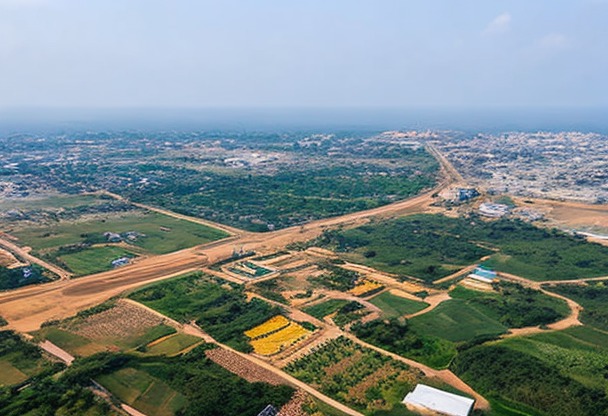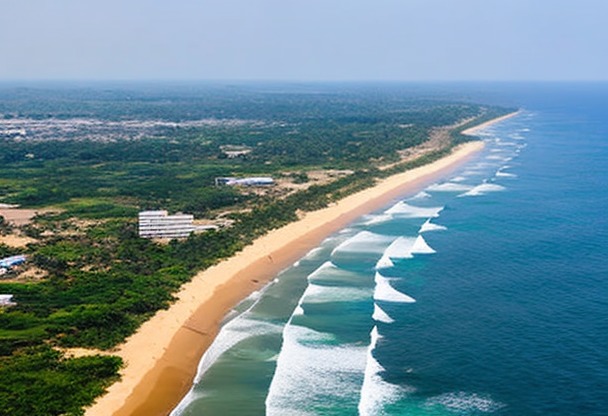Best time to travel to Togo
Choosing the right period for your trip to Togo can make all the difference. It's important to consider climatic elements, seasonal events and busy tourist periods to maximize your travel experience.

Location
Climate
Low and high season periods
Togo has two main seasons: the dry season and the rainy season. Each has its advantages and disadvantages, depending on your wishes and budget. However, it is generally advisable to avoid the rainy season to avoid being bothered by heavy rainfall.The dry season
The dry season, which lasts from November to MarchThe summer months are undoubtedly the best time to visit Togo. The climate is pleasant, with average temperatures between 25 and 35°C. Rains are rare and roads remain passable, making it easy to get around the country. This is also the period when hotels and tourist sites are less crowded, so you can make the most of your stay.The rainy season
From April to OctoberTogo is crossed by the rainy season. Rainfall is particularly abundant in the coastal regions, diminishing as you move northwards. This period is less suitable for sightseeing due to the sometimes inaccessible roads and the risk of diseases such as malaria. However, if you're prepared for these weather conditions, there are still some accessible regions, such as Kara and Dapaong, located in the north of the country and offering a milder climate.Major cultural events in Togo
Togo offers an exceptional wealth of culture, and several events take place throughout the year to celebrate this heritage. Participating in one of these events will give you a unique experience and a chance to learn more about Togolese culture.Feast of the Epiphanies (January)
This traditional festival, also known as the Fete des Rois, takes place every year in January and marks the end of the Christmas festivities. In Lomé and the surrounding villages, people organize processions and parades to celebrate the day. The Epiphanies festival is an opportunity to taste the famous "galette des rois" and attend traditional dance performances.Evala Festival (July)
This annual event is one of the country's biggest cultural celebrations. The Evala Festival is usually held in July, in the Kara region, and brings together the Kabyè people for a week of festivities. The young men of the community are put to the test in ritual combat and traditional wrestling to mark their passage into adulthood. It's also an opportunity for local people to celebrate and share their customs with visitors.Independence Day (April 27)
Each year, the April 27 commemorates Togo's independence in 1960. The day is a public holiday featuring official events such as military parades and political speeches. Popular festivities also punctuate the day, with concerts, dance performances and entertainment for children.Public holidays
In addition to major cultural events, it's important to know Togo's public holidays so you can plan your stay as well as possible. Here's the list:- January 1st New Year's Day
- February 25 The Day of the Abolition of the Slave Trade
- March or April (date variable) Good Friday and Easter Monday
- May 1st Labour Day
- April 27 Independence Day
- July 21 Feast of Eid el-Kebir (the end of Ramadan)
- August 15 Assumption
- November 1st : Toussaint
- December 25 : Christmas
Insurance
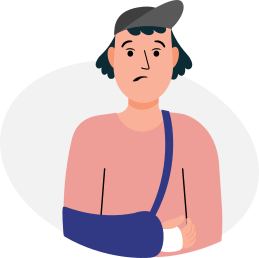
Your credit card does not cover you in all situations, that is whyIt is essential to take out insurance before you leave to avoid any unpleasant surprises. If you need to see a doctor or be hospitalized, in some countries, medical costs are very high and you will then find yourself having to pay several thousand euros.
Our partner Chapka Insurance proposes the contract CAP ASSISTANCE 24/24 with many essential guarantees.
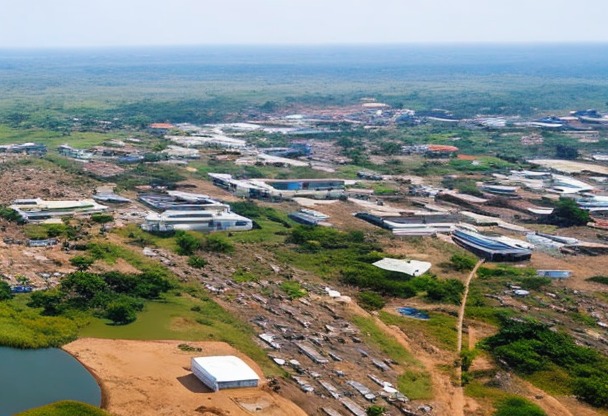
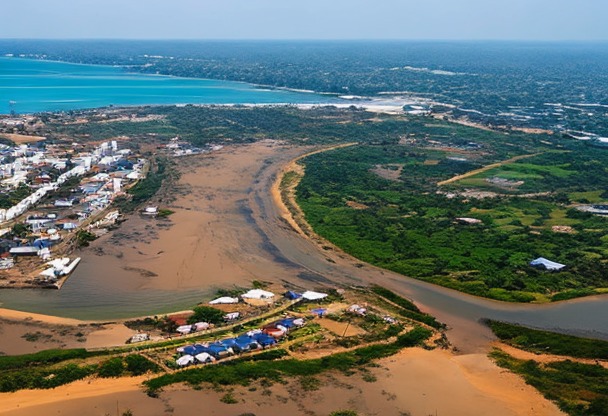
Flights

Your flight has been cancelled or delayed ?
You may be eligible for a compensation of up to €600 ! For this, lawyers are responsible for handling your claim with the airline and are only paid when the reimbursement is effective.
In conclusion, no financial risk for you, only advantages!
Immigration statistics in Togo
The number of immigrants to Togo has risen significantly in recent years. According to data published by the United Nations High Commissioner for Refugees (UNHCR), the total number of refugees and asylum seekers in Togo stood at around 12,000 in 2019. In addition, economic migrants and foreign students also represent a significant proportion of the immigrant population. It is essential to note that these statistics do not necessarily reflect the total number of people entering Togo each year, as they do not take into account temporary visitors such as tourists. Tourism accounts for a significant proportion of annual entries into the country.Most popular visas in Togo
Several types of visa are available for those wishing to visit Togo, and the demand for each varies according to the needs and intentions of the applicants.Tourist visa
The tourist visa is one of the most popular visas in Togo. It allows foreign visitors to stay in the country for a specified period for tourism purposes. Tourists must present a valid passport, proof of hotel or accommodation reservation and a return air ticket to obtain this type of visa.Business Visa
People wishing to visit Togo for professional reasons can apply for a business visa. This visa allows holders to take part in conferences, business meetings or commercial negotiations. To obtain a business visa, applicants must provide a letter of invitation from the company or organization they plan to visit, as well as other relevant documents.Student Visa
Togo also attracts a large number of foreign students, thanks in particular to its high-quality higher education institutions. Students wishing to study in Togo must obtain a student visa. To do so, they must present a letter of admission from a Togolese university or higher education institution, as well as proof of sufficient financial resources to cover their stay.International tourism figures for Togo
Tourism is a key sector of the Togolese economy, and international arrivals have grown steadily in recent years. According to World Bank data, Togo welcomed around 319,000 international visitors in 2018, an increase of almost 50 % compared to 2009.Tourism and the economy
The tourism sector makes a significant contribution to the local economy, particularly in terms of jobs and income. In 2017, it accounted for around 4.5 % of the country's gross domestic product (GDP) and directly and indirectly employed over 40,000 people.Profile of international tourists
The majority of international visitors to Togo come from neighboring countries in West Africa, such as the Democratic Republic of the Congo. Ghana, THE Benign and the Nigeria. More and more European and North American tourists are also discovering this fascinating destination.- Lomé beach: Togo's capital, Lomé, boasts a sandy beach that attracts many national and international tourists every year. As well as swimming and water sports, visitors can enjoy the city's lively nightlife and local markets.
- National parks : Togo boasts several national parks, including the Fazao-Malfakassa National Park and the Kéran National Park. These protected areas offer visitors a unique opportunity to observe local wildlife and enjoy breathtaking natural landscapes.
- Cultural heritage : Tourists can also discover Togo's rich cultural heritage by visiting historic sites such as the Royal Palace of Notsè and the traditional villages of Tamberma. In addition, the country's museums, art galleries and festivals offer a fascinating insight into Togo's cultural diversity.
